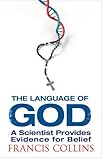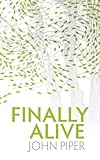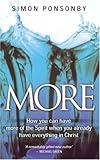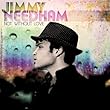
The first thing that stands out about this book is the striking artwork (some of which is on display at the book’s website). From the cover design to the typesetting and illustrations at the start of each chapter, this book is comfortably one of the best presented Christian books I have come across.
A similar high standard of creativity is on display in the way the book is organised. This is a book on the doctrine of the atonement, and works its way through some detailed theology. But the way it is presented is quite unique.
Each chapter starts by briefly telling the story of a person known to Mark Driscoll. Some are Christians, others are not. Many are struggling with the consequences of shocking episodes of their past, whether that be being betrayed or abused, or being an abuser themselves. But a broad spectrum of people are covered (including “good Christian” David, and “pastor’s kid” Gideon), so it is likely that most readers will find at least someone they can identify with.
Having introduced the person, Mark Driscoll writes them a letter. In it he seeks to explain how a specific aspect of the doctrine of the atonement is directly relevant to their situation. These letters are forthright and direct, but also heartfelt and rich in biblical theology. Those who have heard Driscoll preach will know what to expect. He never minimises or excuses sin, and is quite willing to speak of God’s anger at it and the threat of hell, but holds out the good news of grace and forgiveness through Christ for even those who have committed vile offenses.
At the end of each chapter, Driscoll’s co-author, Gerry Breshears answers three or four common questions relating to the doctrine presented in the chapter. The questions are well chosen, and the short and helpful answers complement the letters nicely.
So what does the book teach about the atonement? Well right from the start, Driscoll emphasises that it is multi-faceted. One description or metaphor alone will not do justice to the cross. At the same time, the concept of substitution is clearly presented as the primary model. He takes the example of the scapegoat and sin offering from the day of atonement to illustrate that propitiation and expiation go hand in hand.
We are of course living in times where there is controversy over the doctrine of the atonement, with the idea of penal substitution coming in for severe criticism. This book robustly defends it as a fully biblical concept, but does not fall into the trap of ignoring or minimising other ways in which we should reflect on the significance of the cross. For example, the first chapter in the book deals with Jesus as Christus Victor, while another presents the concept of Christus Exemplar.
I won’t go into all the topics he covers, but suffice to say that there are some very clear explanations of many important doctrines in this book. Driscoll has a knack for presenting familiar material in a fresh way, and the fact that he writes each chapter as a letter to a real person keeps it very practical, and never merely abstract theology.
While I wouldn’t say this book has knocked John Stott’s “The Cross of Christ” off the top of my list of favourite books on the atonement, it deserves a special place of honour simply for the superb presentation of the material. It would be beneficial for anyone who wants to teach on the atonement, or who is involved in counselling to read this book, to see more clearly how to apply the message of the cross to a variety of difficult situations. But this book is also appropriate for any Christian who simply wants a deeper understanding of the message of the cross.























